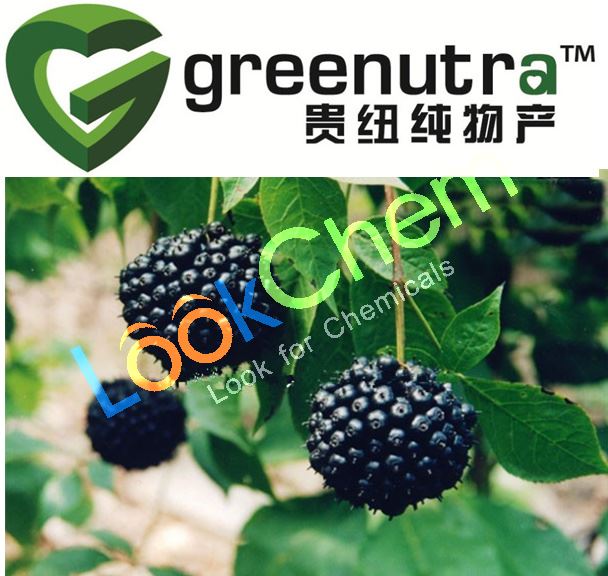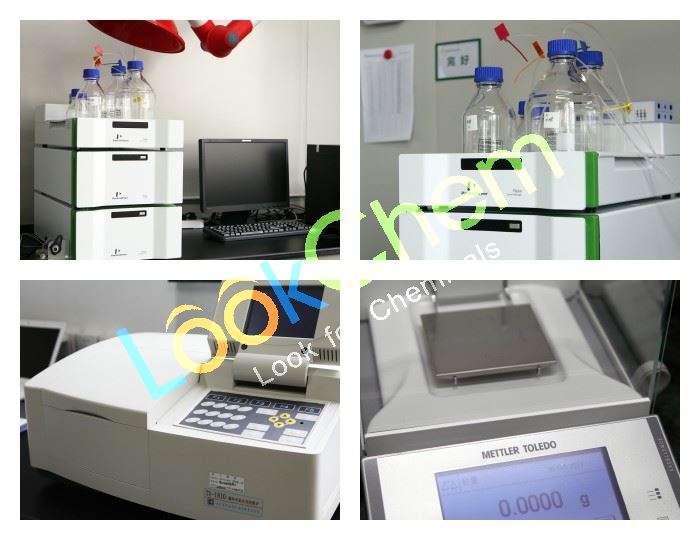Eleuthero Root Extract CAS NO.7374-79-0
- FOB Price: USD: 90.00-90.00 /Kilogram Get Latest Price
- Min.Order: 1 Kilogram
- Payment Terms: L/C,D/A,D/P,T/T,
- Available Specifications:
A(1-25)Kilogram
- Product Details
Keywords
- Eleuthero Root Extract
- Siberian Ginseng Extract
- Eleutheroside
Quick Details
- ProName: Eleuthero Root Extract
- CasNo: 7374-79-0
- Molecular Formula: C28H36O13
- Appearance: brown yellow fine powder
- Application: health food
- DeliveryTime: 5days
- PackAge: Food grade multiplayer polyethylene ba...
- Port: Dalian
- ProductionCapacity: 300 Kilogram/Month
- Purity: 2.0-9.0%HPLC
- Storage: Store in a cool dry place, avoiding su...
- Transportation: DHL/by sea
- LimitNum: 1 Kilogram
- Plant of Origin: Schisandra
- Testing Method: HPLC
- Product Ecification: 2.0-9.0%HPLC
- Heavy Metal: 10ppm
- Voluntary Standards: USP
Superiority
Siberian Ginseng Extract


Product name:Eleuthero Root Extract
Latin Name:Eleutherococcus senticosus
Molecular Formula: C17H24O9
Molecular Mass: 372.37
Quality data
Quality data
Microbiological data
Addition data
Indications and Uses
1. Having curative effect on neurasthenic and insomnia
2.Anti-aging.
3.Expanding blood vessel, improving brain blood supplying, and reducing and adjusting blood pressure, curing coronary heart disease.
4.Resisting inflammation.
5.Anti-knub
6.Having notable curative effect on neurasthenic, improving sleeping heartthrob, bad memory etc.
History
Schisandra is one of the many traditional Chinese herbs recommended for coughs and various nonspecific pulmonary diseases. It has been studied extensively in Chinese and Japanese literature. Schisandra has been used for healing purposes for over 2,000 years. It is often used as an ethanolic tincture. The Chinese name for the plant, wu-wei-zu, means “5 taste fruit” and is associated with sweet, sour, bitter, astringent, and salty flavors. Salty and sour tastes were believed to have effects on the liver and testicles, while the bitter and astringent properties were beneficial to the heart and lungs. The sweet component had effects on the stomach.
Traditional Use
A classical treatise on Chinese herbal medicine, Shen Nung Pen Tsao Ching, describes schisandra as a high-grade herbal drug useful for a wide variety of medical conditions—especially as a kidney tonic and lung astringent. In addition, other textbooks on Traditional Chinese Medicine note that schisandra is useful for coughs, night sweats, insomnia, thirst, and physical exhaustion. Adaptogenic herbs, like schisandra, have been used in Traditional Chinese Medicine to improve the ability of the body to respond to stress.
Schisandra has been used as a tonic and restorative, as well as for liver protection, nervous system effects, respiratory treatment, and GI therapy. However, there are limited clinical trials to support these uses.
Active Constituents
The major constituents in schisandra are lignans (schizandrin, deoxyschizandrin, gomisins, and pregomisin) found in the seeds of the fruit. Modern Chinese research suggests these lignans have a protective effect on the liver and an immunomodulating effect. Two human trials completed in China (one double-blind and the other preliminary) have shown that schisandra may help people with chronic viral hepatitis. Schisandra lignans appear to protect the liver by activating the enzymes in liver cells that produce glutathione, an important antioxidantsubstance.
Schisandra fruit may also have an adaptogenic action, much like the herb Asian ginseng, but with weaker effects. Laboratory work suggests that schisandra may improve work performance, build strength, and help to reduce fatigue.
Details
PACKAGING

FACTORY






FAQ
If you have any question when you contact or before place an order to us, please first check the below information for reference. You can find information that can help you decide whether your product or related accessory needs service, and see what service options are available to you.




 Premiumsupplier
Premiumsupplier


